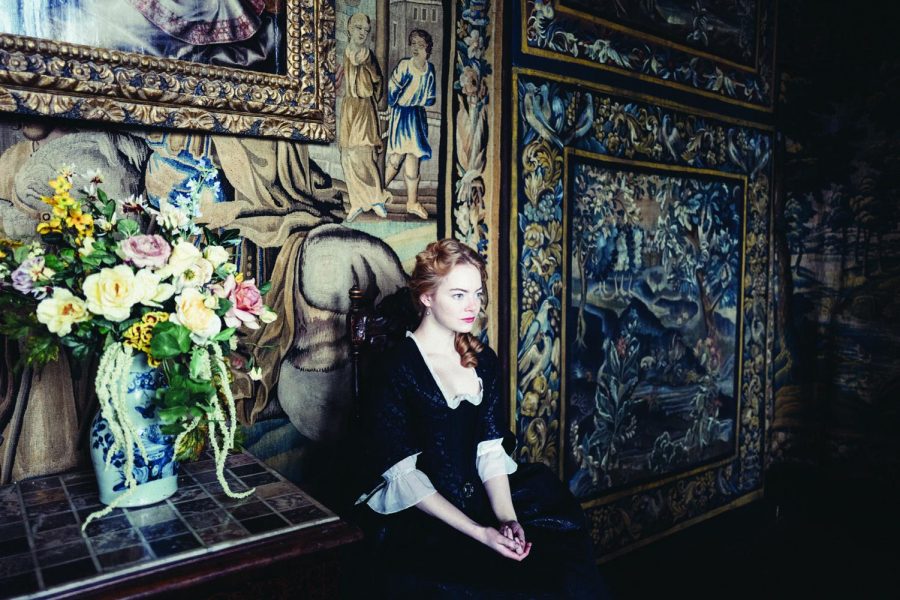The (least) Favourite
Photo Element Pictures
Emma Stone in The Favourite
With ten Oscar nominations, The Favourite certainly seems to be the favorite of the Academy. For conventional moviegoers, however, it seems to be quite the opposite.
The Favourite, directed by Yorgos Lanthimos, takes place in 18th century England, where Queen Anne (played by Olivia Colman) sits at the throne during the war between her homeland and France. An insecure ruler plagued by the deaths of her 17 children, the royal heavily depends on her close aid—and lover—Lady Sarah Churchill (Rachel Weisz) to guide her through wartime decisions. Their secretive, lustful relationship seems secure until Queen Anne falls victim to gout and Abigail (Emma Stone) comes along. Abigail, Sarah’s unemployed cousin, steps in as a palace servant, but after grabbing the Queen’s attention, Abigail rises the ranks to becoming her close—perhaps closest—confidant. Both Lady Sarah and Abigail have their own motivations for gaining the Queen’s heart, and what ensues is a contest rich in manipulative jealousy and corseted vanity.
The Favourite is a dramatic period piece which unsuccessfully attempts to incorporate comedic moments as means to lighten the anti-climactic plot. Even with the lens of accepting its quirky and offbeat nature, this movie was raunchy and over-hyped. I spent most of my time waiting for the good part to come, but it is simply a baroque love triangle in slo-mo with disturbing music and pompous characters. Like the rest of the film, the conclusion was unsatisfying leaves you with a cloudy migraine of bunnies (Queen Anne’s favorite animal) and the feeling that you should have left when you had the chance.
Despite its major shortcomings in plot and music, The Favourite can be appreciated for its cinematography, costume design, and above all, acting. The camera’s slither through elaborate rooms and bended-corner shots mirror the warpedness of Lady Sarah and Abigail’s vicious competition. The black-and-white clothing oscillates between ornate taffeta gowns and linen frocks in order to parallel the ladies’ stoic facades and vulnerabilities as women in a hierarchical and patriarchal society.
Furthermore, it is no surprise that all three leading ladies are nominated for an Oscar: Colman for Best Actress, and Weisz and Stone for Best Actress in a Supporting Role. Colman is raw in conveying the Queen’s mercurial personality and pathetic fits of insanity. She amazingly captures the Queen’s duress in her limited capabilities, mentally and physically. Weisz and Stone are brilliant in portraying manipulative and fearless opportunists, balancing their apparent sweetness and ambition.
This is a classic case in which the Academy loves the film, but most audiences would concur that it’s not their favorite.

